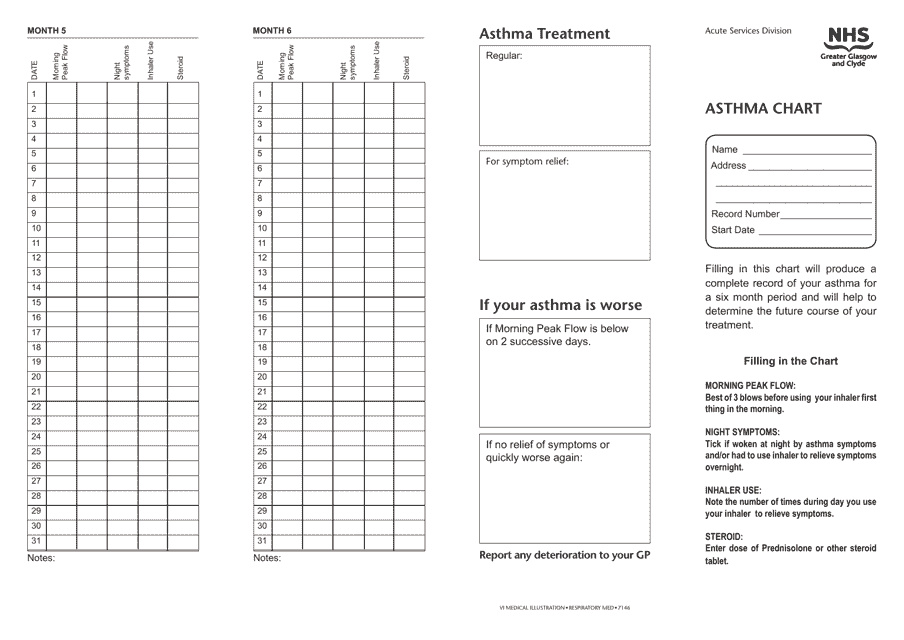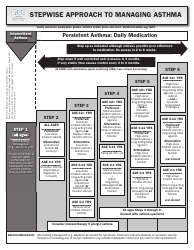Asthma Chart
An Asthma Chart is a document that helps individuals manage their asthma by tracking symptoms, medications, and peak flow readings. It can provide valuable information for healthcare providers to assess asthma control and make any necessary adjustments to treatment plans.
The Asthma Chart is typically filed by healthcare providers or medical professionals who are responsible for managing and treating patients with asthma.
FAQ
Q: What is asthma?
A: Asthma is a chronic respiratory condition that causes inflammation and narrowing of the airways.
Q: What are the common symptoms of asthma?
A: Common symptoms of asthma include wheezing, coughing, shortness of breath, and chest tightness.
Q: What triggers asthma symptoms?
A: Asthma symptoms can be triggered by various factors, including allergies, respiratory infections, exercise, stress, and exposure to irritants such as smoke or strong odors.
Q: Is asthma a curable condition?
A: While asthma is not curable, it can be effectively managed with proper treatment and control measures.
Q: What are the treatment options for asthma?
A: Treatment options for asthma may include medications such as inhalers (bronchodilators and corticosteroids), avoiding triggers, and developing an asthma action plan.
Q: Can asthma be fatal?
A: Severe asthma attacks can be life-threatening, but with proper management, the majority of people with asthma can lead normal and active lives.
Q: Can asthma be prevented?
A: While asthma cannot be prevented, it is possible to reduce the risk of developing asthma by avoiding exposure to tobacco smoke, air pollution, and other environmental triggers.
Q: Can children outgrow asthma?
A: Some children may outgrow asthma or experience milder symptoms as they get older, but it is important to continue monitoring and managing the condition.
Q: Can asthma be hereditary?
A: Asthma can have a genetic component, meaning that having a family history of asthma or allergies can increase the risk of developing the condition.
Q: What should someone do during an asthma attack?
A: During an asthma attack, it is important to use a rescue inhaler as prescribed, seek emergency medical help if symptoms worsen, and follow an asthma action plan.





